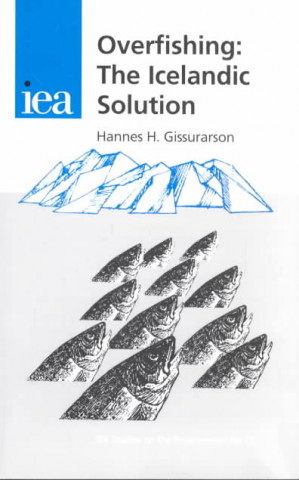
Kód: 04560052
Overfishing
Autor Hannes H. Gissurarson
In this monograph, Professor Gissurarson explains the Icelandic model of fisheries management, Individual Transferable Share Quotas (ITQs), implemented in 1979 to reverse the decline in Icelandic fish stocks. Access to Icelandic f ... celý popis
- Jazyk:
 Angličtina
Angličtina - Vazba: Pevná
- Počet stran: 68
Nakladatelství: Institute of Economic Affairs, 2000
- Více informací o knize

360 Kč
Dostupnost:
50 % šance Máme informaci, že by titul mohl být dostupný. Na základě vaší objednávky se ho pokusíme do 6 týdnů zajistit.
Máme informaci, že by titul mohl být dostupný. Na základě vaší objednávky se ho pokusíme do 6 týdnů zajistit.Prohledáme celý svět
Mohlo by se vám také líbit
-

Online Trading Cookbook
2279 Kč -
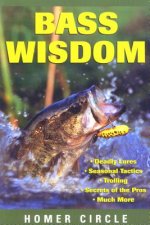
Bass Wisdom
431 Kč
Dárkový poukaz: Radost zaručena
- Darujte poukaz v libovolné hodnotě a my se postaráme o zbytek.
- Poukaz se vztahuje na celou naši nabídku.
- Elektronický poukaz vytisknete z e-mailu a můžete ihned darovat.
- Platnost poukazu je 12 měsíců od data vystavení.
Informovat o naskladnění knihy
Zadejte do formuláře e-mailovou adresu a jakmile knihu naskladníme, zašleme vám o tom zprávu. Pohlídáme vše za vás.
Více informací o knize Overfishing
Nákupem získáte 36 bodů
 Anotace knihy
Anotace knihy
In this monograph, Professor Gissurarson explains the Icelandic model of fisheries management, Individual Transferable Share Quotas (ITQs), implemented in 1979 to reverse the decline in Icelandic fish stocks. Access to Icelandic fisheries was traditionally open to all. In the 1960s and 1970s excessive catches of herring and then cod led to a decline in stocks of these important species in Iceland's waters. In response, Iceland's government imposed restrictions on the number of days trawlers could put to sea to catch certain species. This led to fishing Derbies, where fishermen competed to catch as many fish as possible in the limited time available. Inevitably, catches continued to exceed sustainable levels. Starting in 1979, the Icelandic government gradually introduced a system of individual transferable share quotas (ITQs), which essentially give boat owners the right to catch a specific proportion of the total allowable catch (TAC) of certain species. If a boat owner does not wish to use all his ITQ he can sell part of it to someone else. This encourages more efficient use of the capital invested in boats and equipment. Because ITQs entitle their owners to a specific share of the future stock of fish, they create incentives to ensure that stocks are sustainable. Since the introduction of ITQs, capital invested in Icelandic fisheries (boats and equipment) has been gradually falling and catches have fallen to sustainable levels, whilst the value of catches has risen. Because of the success of the ITQ system and the wealth it has created, there is now political pressure for an imposition of a resource rent tax. But such a tax would be contrary to the interests of effective conservation of fish stocks. A more appropriate next step would be to introduce a cost-recovery charge and, as a quid pro quo, give ITQ owners greater say in the administration and enforcement of the system. Owners of ITQ would have stronger incentives to ensure that catch levels were set at the economically optimal level.
 Parametry knihy
Parametry knihy
Zařazení knihy Knihy v angličtině Economics, finance, business & management Economics
360 Kč
- Plný název: Overfishing
- Podnázev: The Icelandic Solution
- Autor: Hannes H. Gissurarson
- Jazyk:
 Angličtina
Angličtina - Vazba: Pevná
- Počet stran: 68
- EAN: 9780255364898
- ISBN: 025536489X
- ID: 04560052
- Nakladatelství: Institute of Economic Affairs
- Hmotnost: 124 g
- Rozměry: 219 × 137 × 6 mm
- Datum vydání: 20. October 2000
Oblíbené z jiného soudku
-
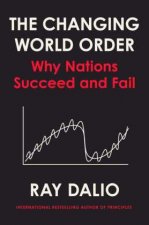
Principles for Dealing with the Changing World Order
575 Kč -

Team Topologies
543 Kč -

Freakonomics
225 Kč -

Misbehaving - The Making of Behavioral Economics
298 Kč -

Indispensable Milton Friedman
683 Kč -

Little Book of Economics
276 Kč -

Why Nations Fail
205 Kč -

Pyramid Principle, The
1163 Kč -

Essential Mathematics for Economic Analysis
1840 Kč -
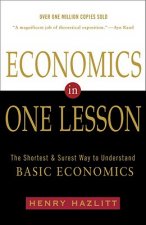
Economics In One Lesson
410 Kč -

Predictably Irrational
421 Kč -

Price of Inequality
298 Kč -

(Mis)Behaviour of Markets
356 Kč -

Debt, 10th Anniversary Edition
703 Kč -

A-Level Economics: Year 1 & 2 Complete Revision & Practice (with Online Edition)
699 Kč -

The Invisible Hand
196 Kč -

Liar's Poker
304 Kč -
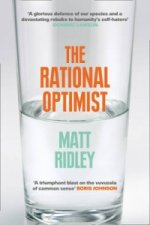
Rational Optimist
307 Kč -

Irrational Exuberance
486 Kč -
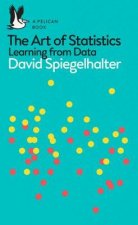
Art of Statistics
323 Kč -

Scrum - A Pocket Guide - 3rd edition
562 Kč -

Hypomanic Edge
505 Kč -

How I Made One Million Dollars Last Year Trading Commodities
1009 Kč -

Misbehavior of Markets
604 Kč -

Econometric Analysis, Global Edition
2158 Kč -

Cartoon Introduction to Economics
580 Kč -

Economics: The User's Guide
378 Kč -
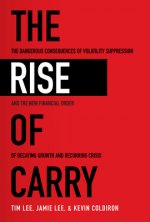
Rise of Carry: The Dangerous Consequences of Volatility Suppression and the New Financial Order of Decaying Growth and Recurring Crisis
677 Kč -

Myth of Capitalism - Monopolies and the Death of Competition
596 Kč -

How Rich Countries Got Rich and Why Poor Countries Stay Poor
410 Kč -
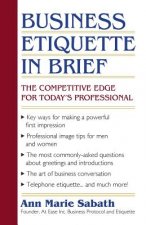
Business Etiquette in Brief
311 Kč -

Intermediate Microeconomics and Its Application
2616 Kč -

Discovery, Capitalism & Distributive Justice
552 Kč -

Are the Rich Necessary?
282 Kč -

Economic Point of View
706 Kč -

Driving Digital Transformation
543 Kč -

Start-Up Nation
268 Kč -

Economic Facts and Fallacies
423 Kč -

Decision Book
415 Kč -
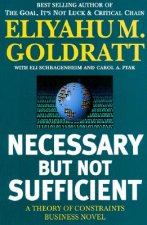
Necessary but Not Sufficient
419 Kč -

Freakonomics
169 Kč -

Economics Book
564 Kč -

Leading at a Higher Level
799 Kč -

Principles of Economics
392 Kč -

Macroeconomics For Dummies
627 Kč -

45 Second Presentation That Will Change Your Life
243 Kč -

Economics of the Public Sector
1965 Kč -

Factfulness
258 Kč -

Currency Wars
433 Kč
Osobní odběr Praha, Brno a 12903 dalších
Copyright ©2008-24 nejlevnejsi-knihy.cz Všechna práva vyhrazenaSoukromíCookies


 Vrácení do měsíce
Vrácení do měsíce 571 999 099 (8-15.30h)
571 999 099 (8-15.30h)